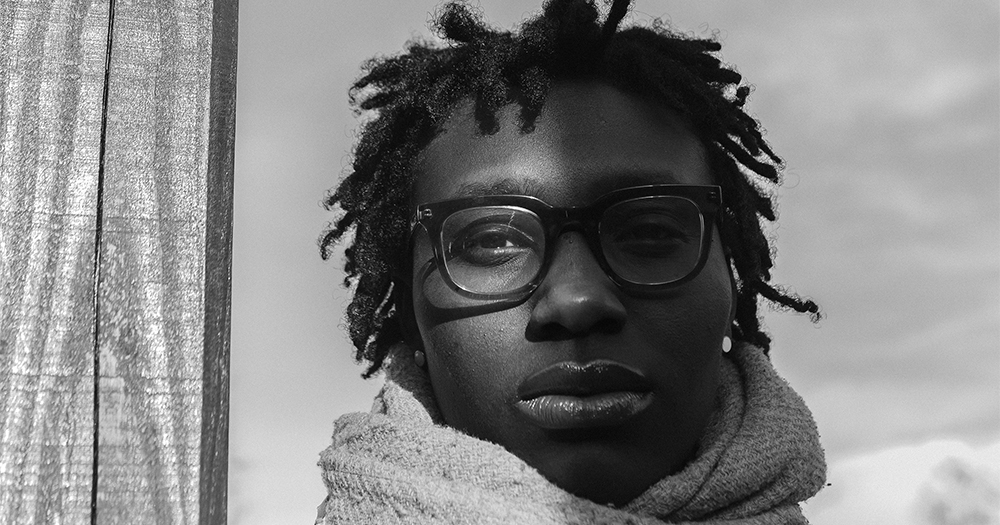To celebrate Anti Racism Month, Pradeep Mahadeshwar talks with queer artists of colour living in Ireland. In this interview, he speaks with Felicia Olusanya, also known as Felispeaks, a Nigerian-Irish poet, performer and playwright.
Felicia Olusanya is an artist and writer who consistently transforms herself, and others, with her art. Living in Ireland for the past 18 years, she offers workshops that help people to create art. Many people within the LGBTQ+ community look to her as an inspiration, a role model.
Felicia shared the inspirations behind ‘Felispeaks’ and how queerness accentuates her work: “Felispeaks was born on a very intense day – I’m not quite sure what exactly inspired me. Also, I don’t think the name is unique – like shortening my name and sticking ‘speaks’ to it.”
It’s a persona she created as a medium to present her thoughts and ideas to the world. “I enjoy writing about issues that concern both myself and the people around me, especially social issues. Ever since I have accepted my queerness, it just subconsciously flows through my work. I’ve recently started intentionally including my queer experiences in writing – it is still a new experience for me. I visualise an imaginary space where experiences of Black queer people have desired visibility.”
The relationship between her queerness and how her family perceives it gives a fascinating insight into the ‘coming out’ process in the lives of many QPOC. “The dynamics between my family and my queerness is interesting because I’ve never ‘come out’ to my family yet; I never felt that urge. Only recently, I accepted myself as queer.
“My mother had probably known about my queerness before I realised it. I can see how she describes my femininity and masculinity. We don’t discuss it. She is on my Instagram; I discuss LGBTQ+ issues on social media; nothing is hidden from her. She doesn’t feel the need to confront. I think we both enjoy the comfortable silence – I may be wrong, but that’s how I feel at present.”
Felicia shared the journey of one of her latest pieces of work which appeared in Spotlight: Éire to the World – an event that celebrated Black Irish creatives. “This work is about a celebration of Black people and the art in their lives. I was the only Black poet on the line-up, so I felt the need to use my voice for the queer Blackness that doesn’t get a lot of attention and visibility.
“Even within the Black community, there is no discourse about our queerness, religion, and our parents’ interacting with our queerness. In Jesus’ Name, the piece, honours the Christian Black queer person who is self-aware of queerness but doesn’t know how to express and celebrate it. Religion and family values don’t give us any space for self-expression and self-esteem. So I wrote that piece to give voice to the people who deserve and are seeking freedom of self-expression.”
Felicia talked about the lack of representation of queer women of colour in mainstream media and what needs to be done to increase their visibility. “I wouldn’t say there are enough; I think many of us are still finding our space. I wish I saw more of us out there. White queerness has a certain degree of presence in mainstream media and literature; I hope there must be some space for visibility and awareness about the range of life experiences queer women of colour encounter.”
Felicia continued, “For many women of colour, especially if they’re queer and African and are not born in Ireland – I think there is no space to accept their queer identity. If there is more space for self-acceptance within our families in Ireland, it will reflect on the broader community level. Not to generalise everybody, but I have experienced that the Black Irish society doesn’t celebrate queerness.
“Once we embrace the Black African queerness with an open mind, we can push for more visibility for the entire community. But that’s just my opinion based on my thought process. Creating more safe spaces for people to speak should be our first goal. Some comfortable spaces already exist; we need to encourage people to access them to tell their stories.”
To learn more about Felispeaks, visit her website here and follow her on Instagram.
For more of Pradeep Mahadeshwar’s work, follow him on Instagram.
© 2021 GCN (Gay Community News). All rights reserved.
Support GCN
GCN is a free, vital resource for Ireland’s LGBTQ+ community since 1988.
GCN is a trading name of National LGBT Federation CLG, a registered charity - Charity Number: 20034580.
GCN relies on the generous support of the community and allies to sustain the crucial work that we do. Producing GCN is costly, and, in an industry which has been hugely impacted by rising costs, we need your support to help sustain and grow this vital resource.
Supporting GCN for as little as €1.99 per month will help us continue our work as Ireland’s free, independent LGBTQ+ media.
